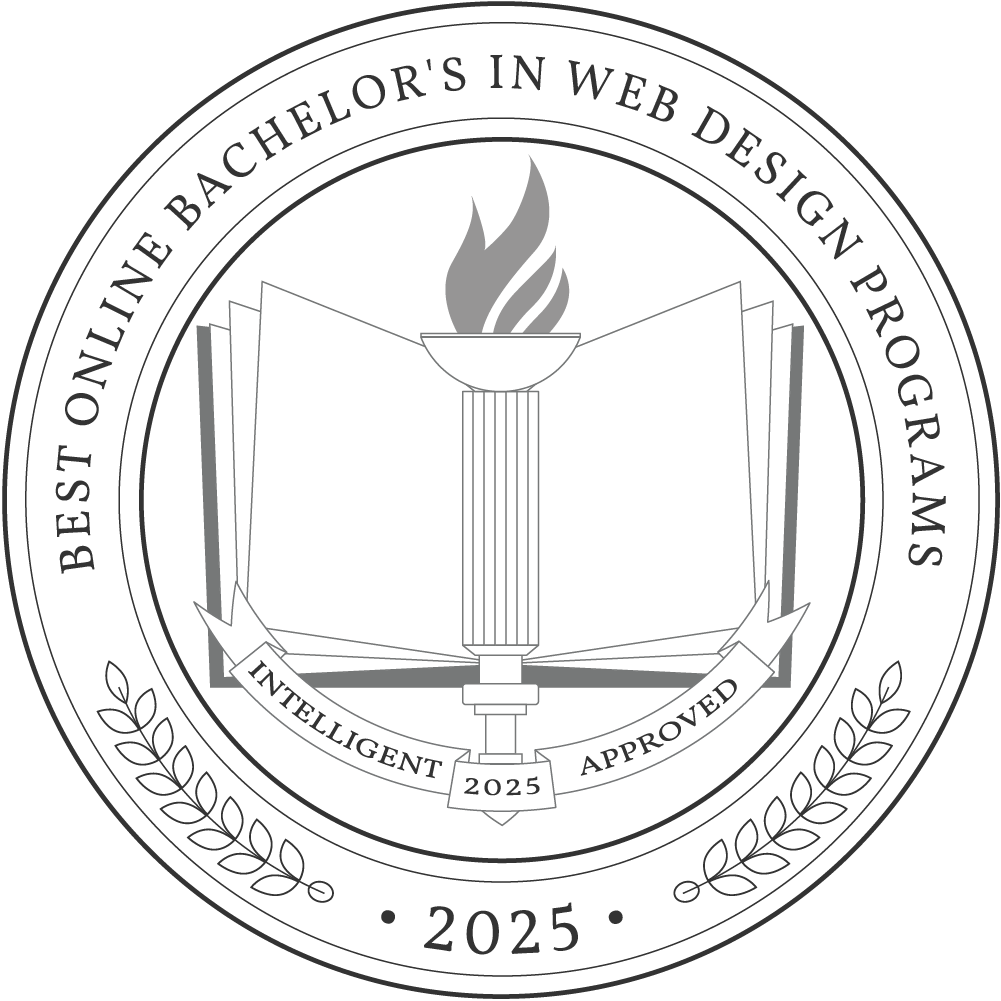At a Glance

$525
Cost per Credit
120
Credit Hours
100%
Online
2-4 years
Program LengthBachelor’s in Cybersecurity, BS
Program Overview
At a Glance

$525
Cost per Credit
120
Credit Hours
100%
Online
2-4 years
Program LengthWhy Study Cybersecurity?
There is a growing need for skilled cybersecurity professionals across many industries, including local, state, and federal governments. To prepare for an entry-level career in fields like information security and network security, Lindenwood University’s online Bachelor of Science in Cybersecurity program gives you the strong foundation you need to succeed as an IT security professional.
Through our accelerated and affordable online cybersecurity bachelor’s degree program, you can gain the fundamental skills you need to succeed in cybersecurity. Featuring coursework in areas such as adaptive cybersecurity, network security, cloud security, IT auditing, authentication, digital forensics, cybersecurity analysis, penetration testing, and project management, our accelerated online cybersecurity degree teaches you the tools and strategies used for battling malicious cyberattacks — such as malware and phishing schemes — and protecting businesses through preventative strategies addressing cyber threats and IT vulnerabilities.
What You'll Learn
Our online cybersecurity bachelor’s degree coursework can prepare you to help ensure the security of organizational network and digital resources. Explore key cyber security techniques and tools, enhanced through topical focuses in the following areas:
- Foundations of Cybersecurity
- Network and Cloud Security
- Ethical Hacking
- Web Based Application Security
Essential Skills & Insights
Coursework in this online cybersecurity bachelor’s degree program covers the following:
- Analytical Thinking: prepare to make decisions based on your understanding of cybersecurity tactics and criminal behavior within the cyber landscape.
- Adaptable Approach: develop well-rounded expertise in preventative and responsive cybersecurity protocols that readily adapts to varying cybersecurity scenarios – from malware to phishing to other network breaches.
- Project Management Skills: learn to manage cyber security projects end-to-end.
- IT Skills: Gain C++, JavaScript and other essential IT proficiencies.
Accreditations/Certificates
The online cybersecurity bachelor’s degree program prepares students to pursue industry-relevant cyber security and IT certifications like the following:
Career Outlook
Graduates have the opportunity to protect valuable information assets for organizations, while earning a lucrative salary and taking advantage of a growing job field. According to the U.S. Bureau of Labor Statistics, Information Analysts can earn a median annual salary of $120,360 and enjoy much-faster-than-average job growth of 32 percent. Other career paths include Cyber Crime Analyst, Incident Response Analyst, Risk Analyst, IT Auditor, Cyber Security Consultant, Cyber Security Engineer, Systems Administrator, Security consultant.
Tuition Details
The cost per credit hour for this online cybersecurity bachelor’s degree program is $495. Besides being ranked No. 17 on Niche.com’s list of Best Value Colleges in Missouri, we build in unique benefits such as our 20 percent discount per credit hour for returning alumni pursuing their master’s degree.
Admissions Requirements
For admission to your cybersecurity degree online program, you will need to complete your online application and submit the following documents:
- Online application
- Official transcripts
All colleges and universities previously attended. If you have fewer than 24 college credits, you will need to submit your official high school transcript.
If cumulative college GPA is below a 2.0, the following will also be required:
- Résumé
- Letter of intent/personal statement
(1–2 page document indicating your interest in the program and Lindenwood)
TRANSFER CREDITS
Lindenwood offers a generous transfer policy of up to 90 credits toward your bachelor’s degree in cybersecurity online completion to further offset tuition costs. This means you can complete your degree in as few as 30 credit hours at Lindenwood—saving you time and money on your education!
Plus, you can personalize your transfer experience through Lindenwood’s Transfer Guides. These guides are part of our articulation partnerships with area community college to help you get the most value from your transfer credit.
Learn MoreCurriculum Overview
The online BS in Cybersecurity program provides a comprehensive curriculum that will prepare you for a wide variety of careers in this growing field. With the flexibility of online coursework, you can gain a deep understanding of essential topics, such as ethical hacking, network security, project management, and digital forensics. Courses are taught by experienced faculty with years of knowledge from working in the field of cybersecurity. They will focus on equipping you with the skills employers are looking for in top candidates.
Major Coursework – 60 Credit Hours
| Code | Title | Credits |
|---|---|---|
| ICS 21300 | Foundations of Information Technology | 3 |
| ICS 21400 | Foundations of Networking | 3 |
| ICS 31000 | Foundations of Cybersecurity | 3 |
| ICS 32700 | Network and Cloud Security | 3 |
| ICS 32800 | Digital Forensics and Cyber Investigation | 3 |
| ICS 41200 | Linux Server Installation & Configuration | 3 |
| ICS 41500 | Cloud Computing Essentials and Best Practices | 3 |
| ICS 41700 | Hybrid Cloud Architecture and Management | 3 |
| ICS 42100 | Ethical Hacking | 3 |
| ICS 42300 | Advanced Penetration Testing | 3 |
| ICS 42400 | Cybersecurity Analysis | 3 |
| ICS 43200 | Secure Software Development | 3 |
| ICS 43300 | Web Based Application Security | 3 |
| ICS 48900 | Cybersecurity Capstone | 3 |
| IIT 21500 | Programming Logic and Design | 3 |
| IIT 22000 | Hardware and Operating Systems | 3 |
| IIT 33400 | Ethical Issues in Cybersecurity | 3 |
| IIT 33500 | Blockchain Technology for Business | 3 |
| IIT 35100 | Database Analysis and Design Concepts | 3 |
| IIT 48100 | Project Management in Information Technology | 3 |
Mathematics Coursework – 6 Credit Hours
| Code | Title | Credits |
|---|---|---|
| MTH 14100 | Basic Statistics | 3 |
| GE | Any General Education Math Course | 3 |
Accreditations and Awards
Best Online Bachelors in Web Design

Career Opportunities

Cybersecurity Analyst
Monitor and protect computer systems and networks from cyber threats by conducting security assessments and responding to security incidents.

Network Security Administrator
Configure and manage network security systems to ensure the security and integrity of organizational networks.

Information Security Consultant
Provide expert advice to organizations for implementing cybersecurity policies, procedures, and technology to eliminate cyber threats.
Frequently Asked Questions
What are some things to know before starting an online cybersecurity degree?
Before starting an online cybersecurity degree it’s important to know whether the degree is right for you as far as your education and career goals. Additionally, you need to know whether there are any program prerequisites or admissions requirements.
Is a bachelor of science in cybersecurity worth it?
Yes, pursuing an education through an online cybersecurity bachelor’s degree program could help you start or advance your career in cybersecurity or another IT or computer-focused industry.
How long is an online bachelor’s in cybersecurity program?
You can pursue and earn an accelerated online cybersecurity bachelor’s degree in as little as two to four years.
Will previously earned cybersecurity certifications transfer into college credit?
Cybersecurity certifications may be eligible for college credit through our Prior Learning Credit program.
How many hours do cyber security professionals work?
This varies depending on the particular job role. Many cyber security professionals work a traditional 8-5 schedule, however, some work non-traditional hours or are on-call, so it’s important to research the particular job role you are interested in.
What does the future of cyber security look like?
The future of cyber security will be shaped by an increasing demand for the protection of business information assets, as well as the continuous innovations and improvements in technologies in this area. Employment in this area will continue to grow at a much-faster-than-average pace, according to The U.S. Bureau of Labor Statistics projects a 32 percent job growth rate through 2032 for Information Security Analysts.
Related Programs

Bachelor’s in Information Technology
Prepare to become a leader in organizational IT operations through one of two concentration paths: Applications Development or Networking.
learn more
Master’s in Game Design
Develop your approach to game design and development and prepare to lead from concept to prototype.
learn more
Bachelor’s in Interdisciplinary Studies
Focus on multiple areas of study and prepare for careers in art, business, design, education, fine arts, marketing, media, technology, and more.
learn moreWe are committed to helping you succeed.
Throughout each step of your online degree program, you will receive support. From enrollment and tuition planning to staying on the right track, your support team is there to ensure your success.
Request Info